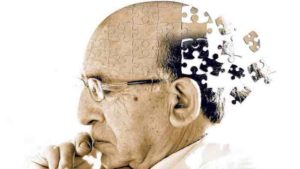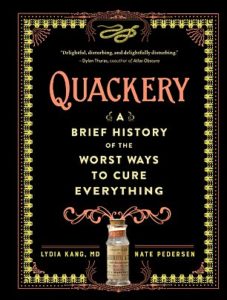 Recently, an 82-year-old woman who suffered from dementia, who couldn’t recognize her own son has miraculously got her memory back after changing her diet.
Recently, an 82-year-old woman who suffered from dementia, who couldn’t recognize her own son has miraculously got her memory back after changing her diet.
When his mother’s condition became so severe that for her own safety she had to be kept in the hospital, Mark Hatzer almost came to terms with losing another parent. Continue reading

 Turmeric has been used in India for over 5,000 years, which is likely why still today both rural and urban populations have some of the lowest prevalence rates of Alzheimer’s disease (AD) in the world. A recent study on patients with AD found that less than a gram of turmeric daily, taken for three months, resulted in ‘remarkable improvements.’
Turmeric has been used in India for over 5,000 years, which is likely why still today both rural and urban populations have some of the lowest prevalence rates of Alzheimer’s disease (AD) in the world. A recent study on patients with AD found that less than a gram of turmeric daily, taken for three months, resulted in ‘remarkable improvements.’ Dementia haunts the United States. There’s no one without a personal story about how dementia has touched someone they care for. But beyond personal stories, the broader narrative is staggering: By 2050, we are on track to have almost 15 million Alzheimer’s patients in the US alone. That’s roughly the population of NYC, Los Angeles, and Chicago combined. Now add a few more cities to take care of them.
Dementia haunts the United States. There’s no one without a personal story about how dementia has touched someone they care for. But beyond personal stories, the broader narrative is staggering: By 2050, we are on track to have almost 15 million Alzheimer’s patients in the US alone. That’s roughly the population of NYC, Los Angeles, and Chicago combined. Now add a few more cities to take care of them. No one really knows what causes Alzheimer’s, but recent studies on the disease are promising. Researchers at the University of British Columbia in Canada have discovered that Alzheimer’s-causing proteins can be formed in the liver and the kidneys, and then transported to the brain through the blood.
No one really knows what causes Alzheimer’s, but recent studies on the disease are promising. Researchers at the University of British Columbia in Canada have discovered that Alzheimer’s-causing proteins can be formed in the liver and the kidneys, and then transported to the brain through the blood. 

 The rate of Alzheimer’s disease in America is expected to double by 2060 to 15 million, a new study revealed. That is up from this year’s rate of 6.08 million Americans that have the debilitating brain disease.
The rate of Alzheimer’s disease in America is expected to double by 2060 to 15 million, a new study revealed. That is up from this year’s rate of 6.08 million Americans that have the debilitating brain disease. What causes Alzheimer’s Disease (AD)? I recently read an article written by Stephanie Seneff, a Senior Research Scientist at the Massachusetts Institute of Technology (MIT) Computer Science and Artificial Intelligence Laboratory. I know from my years at Harvard that MIT does not employ dummies. So it’s worthwhile reading her “Recipe for Developing AD.”
What causes Alzheimer’s Disease (AD)? I recently read an article written by Stephanie Seneff, a Senior Research Scientist at the Massachusetts Institute of Technology (MIT) Computer Science and Artificial Intelligence Laboratory. I know from my years at Harvard that MIT does not employ dummies. So it’s worthwhile reading her “Recipe for Developing AD.”  Memory is an astonishingly powerful thing. It allows you instantly call to mind events, emotions, songs, smells, first loves, first dates, and a thousand other things. In some senses, it is a mysterious thing. How can our brains call such powerful and vivid images to mind years after the fact?
Memory is an astonishingly powerful thing. It allows you instantly call to mind events, emotions, songs, smells, first loves, first dates, and a thousand other things. In some senses, it is a mysterious thing. How can our brains call such powerful and vivid images to mind years after the fact? From doctors giving women orgasms to cure their ‘hysteria’ to cocaine to sooth toothache and tobacco enemas to revive drowning victims…
From doctors giving women orgasms to cure their ‘hysteria’ to cocaine to sooth toothache and tobacco enemas to revive drowning victims… August 9, 2017:
August 9, 2017: Do you often find yourself forgetting things? Or do you perhaps have a history of Alzheimer’s in the family?
Do you often find yourself forgetting things? Or do you perhaps have a history of Alzheimer’s in the family? An active ingredient in green tea called epigallocatechin-3-gallate (EGCG) was found to inhibit memory impairment, brain insulin resistance, and obesity, a new study concluded. According to a study that was published online in The FASEB Journal, EGCG, the most abundant catechin and bioactive component in green tea, can contribute to addressing neuroinflammation issues and brain insulin resistance that is triggered by a high-fat, high-fructose diet (HFFD).
An active ingredient in green tea called epigallocatechin-3-gallate (EGCG) was found to inhibit memory impairment, brain insulin resistance, and obesity, a new study concluded. According to a study that was published online in The FASEB Journal, EGCG, the most abundant catechin and bioactive component in green tea, can contribute to addressing neuroinflammation issues and brain insulin resistance that is triggered by a high-fat, high-fructose diet (HFFD).  Researchers have identified hearing loss, verbal fluency and hospitalization as new factors that can provide clues about cognitive health and aid in early detection of Alzheimer’s and other dementias.
Researchers have identified hearing loss, verbal fluency and hospitalization as new factors that can provide clues about cognitive health and aid in early detection of Alzheimer’s and other dementias.